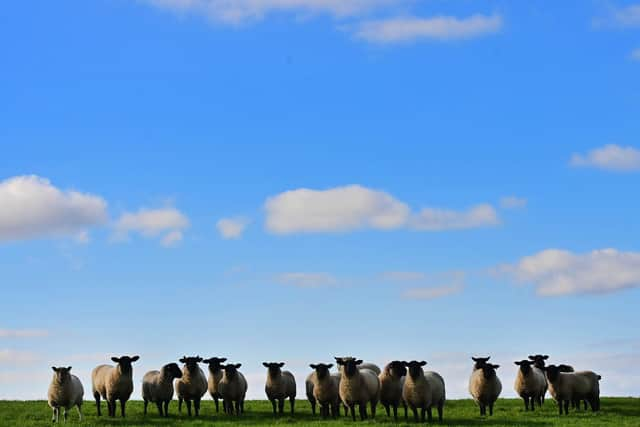Agriculture has been badly damaged by cheap imports
and live on Freeview channel 276
They have seen two deals – with Australia and New Zealand – that are damaging to agriculture because they open the doors to cheap imports. We even had the bizarre spectacle of a House of Lords minister defending these, on grounds that lamb from New Zealand was better for the environment than lamb produced a few miles up the road from where it is sold.Such is the nature of political spin, and the latest claim of “a Brexit success” is a potential entry by the UK intro the Trans Pacific trade pact. It claims this will open markets half a world away that offer more potential than trade with the EU. This needs to be treated with a healthy dose of scepticism. Three of the countries involved – Japan, Australia and New Zealand - already have separate post-Brexit trade deals with the UK, and we know the potential damage from the southern hemisphere deal.Other countries include Canada, which has significant farm export potential. Mexico, Vietnam and Malaysia all have the potential to produce and export cheap intensive products, particularly poultry.Their standards will be below those of the UK, but this does not feature on the government’s agenda when it is seeking the publicity and feel good factor of post-Brexit deals. These are distant markets and the UK is the only player not part of the Pacific rim; it is a political bolt on. This might prove good for industry, but it is hard to see this deal as something to bring cheer to farmers or the food industry. It is a bonus market worth pursuing, but it will be decades, at best, before it has the potential to match the EU, particularly for food.In a classic example of good news and bad news the EU is backing away from using its crisis reserve in the CAP to support farmers. The good news is that this is evidence markets are improving and input costs falling, but the bad news is that with costs still higher than returns for many commodities use of the reserve would be justified. At a meeting of farm ministers the agriculture commissioner, Janusz Wojciechowski, said that while there were still significant problems the market situation is better than expected. He warned that problems remained around Ukraine, the weather, input costs and food price inflation. However the impact of these is not now as bad as feared. Ministers were told positives include an easing of fertiliser and energy costs, greater stability on global food markets and the effectiveness of “solidarity lanes” allowing Ukraine to export to the EU.
There are also rising hopes the easing of the blockade on Black Sea ports will be extended from 60 to 120 days. The Commission said grain prices were coming back to a more normal situation with a downward trend well established. Farm minsters raised problems in individual countries, but had to accept Brussels had made its case against use of the crisis reserve.It was once claimed that in advertising “sex sells” but now in a very different world it is green that sells. No matter what the product may be, companies sell the message that by choosing it over a rival people are making a decision that will be good for the environment.
Advertisement
Advertisement
Green claims are trotted out for everything, but particularly for food. The message is simple – the product is greener than that of a competitor and by not buying it you are damaging the environment. This is guilt-tripping and inevitably the illusion is stronger than the science behind the message. Blatant lies cannot be sold, but the truth is often stretched – often stemming from an assumption that meat eating is bad and modern farming practices equally bad and in need of being discouraged.Now with food as the main target the European Commission is planning legislation against what has been described as “green-washing”.


Those making green claims will have to meet set standards that show, using objective measurements, that these can be substantiated and that the products are genuinely greener than those they claim are less green. This will not apply to products that carry EU organic or eco labels, since these already have to meet standards. The Commission claims the new regulations will protect consumers from unfair claims and companies selling food that genuinely can claim to be greener.